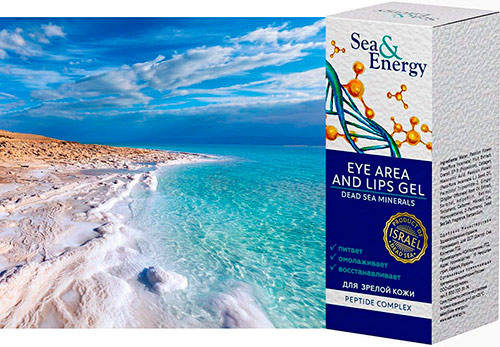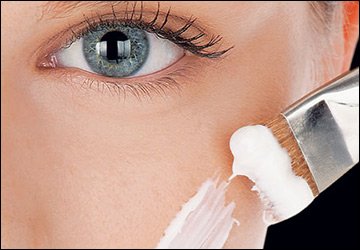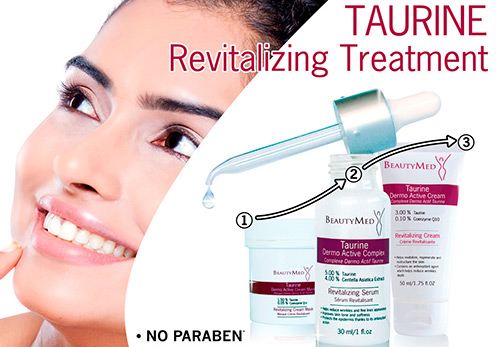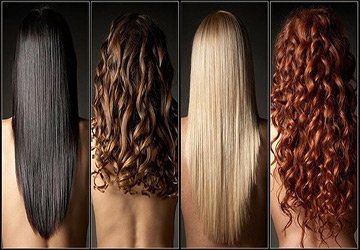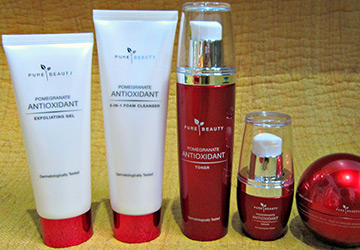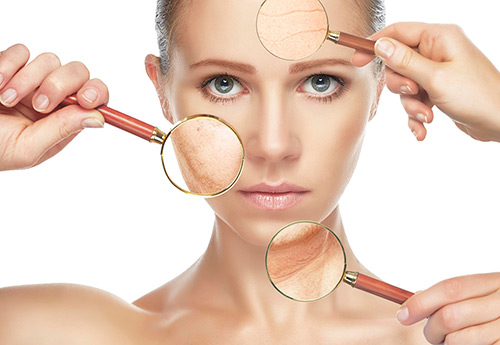Cosmetology
Peptides - what are they?
Today in cosmetology they talk a lot about peptide cosmetics. Let's see what it is, how peptides work, and whether products with peptides applied to the skin can really become "food" for it.
In the human body, protein compounds are needed to strengthen cellular structures, the construction of which occurs in the presence of amino acids. Proteins are natural nitrogen-containing organic compounds. All life processes of living organisms depend on them, therefore they are contained in all tissues.
Protein molecules consist of amino acidsconnected in a chain by the so-called peptide bond. This bond contains the connection of the amino group (–NH2) of one amino acid with the carboxyl group (–COOH) of another amino acid. Tens and hundreds of amino acid molecules, repeatedly connecting with each other by peptide bonds, form huge protein molecules.
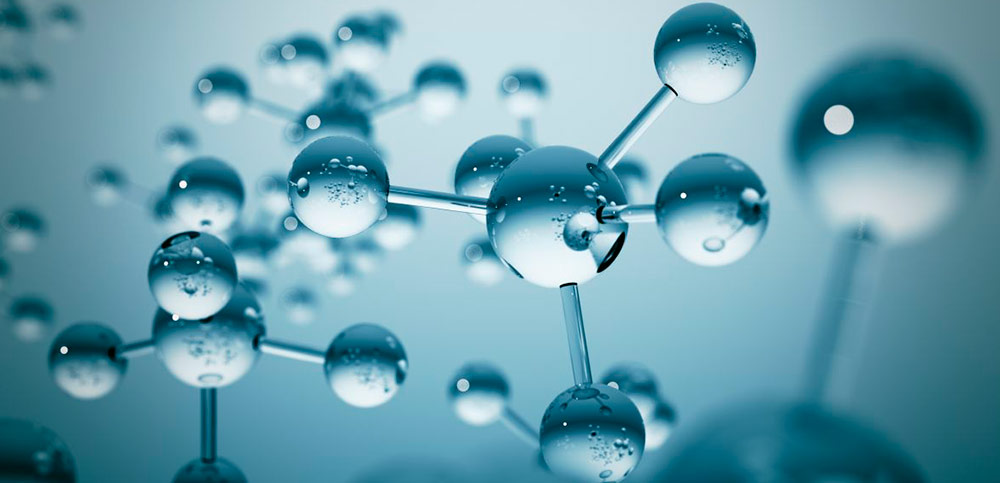
The total number of naturally occurring amino acids known today is about 300, but among them there are rare ones, but there are the most important. The latter are about 20. So they are present in proteins, creating a variety of protein compounds. Protein molecules differ from each other in the amino acids included in them and the sequence of their compounds.
Peptides are built on the principle of protein compounds, but they have much fewer amino acids and a lower molecular weight. Different combinations of amino acids also make up different peptides that differ in their properties and performance of different tasks. Peptides in the body are bioregulators of the activity of individual cells, tissues, organs and the whole organism.
Recently, the study of peptides has become one of the most rapidly developing areas of modern biology and medicine. Cosmetology uses the scientific discoveries of biologists, and in particular, the synthesis of peptides, to create new means that could delay the aging of the body.
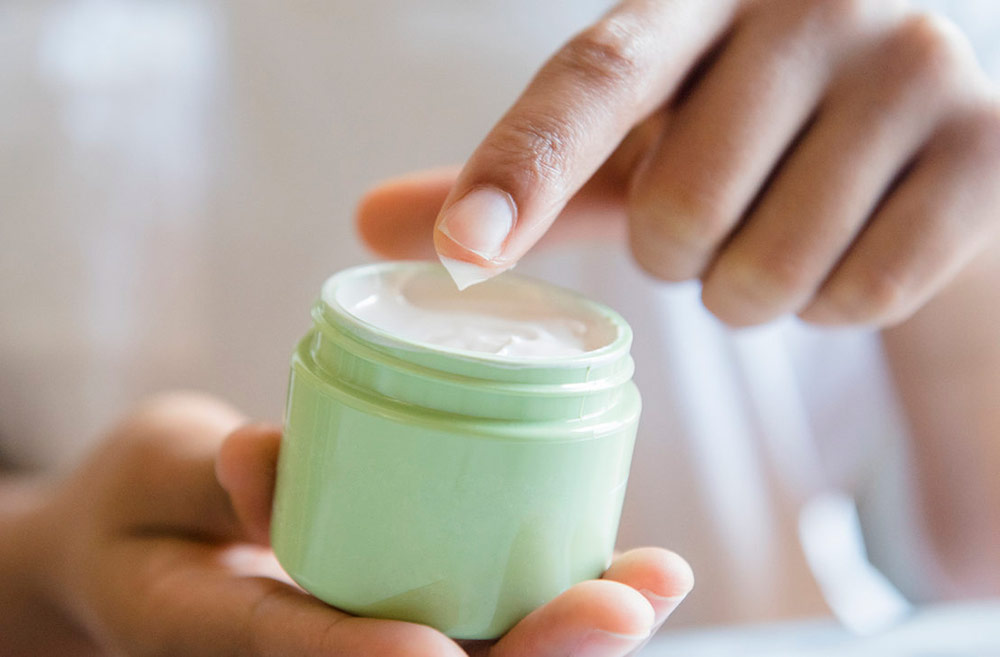
German chemist Hermann Emil Fischer in 1905 developed a method by which it was possible to synthesize peptides in laboratory conditions. Peptides began to be used in medicine about 30 years ago.
So, it is possible to create new cosmetic products with peptides that will become regulators of cell activity and make up for the deficiency of their own proteins?
Protein compounds have huge molecules, they cannot pass through the epidermal barrier. Is it possible for peptides whose molecules are hundreds or more times smaller than protein ones? All cells in our body are nourished through the blood.
Human skin is not a digestive organ, therefore it is not adapted to transform organic compounds into an assimilable form. But this applies to intact skin. If there is an open wound on the skin, then when collagen is applied to the damaged surface, the skin's own collagen is built. This is because in this situation collagen is in direct contact with the dermal layer of the skin, and it does not need to overcome the epidermal barrier.
It turns out that with the help of cosmetics it is impossible to compensate for the deficiency of own proteins by applying them to the surface of intact skin. However, peptides are those protein compounds that are capable of great achievements. Different peptides are used in cosmetics, which will act differently when they come into contact with the skin. It depends on the amino acid composition, molecular weight and cosmetic form of the product.
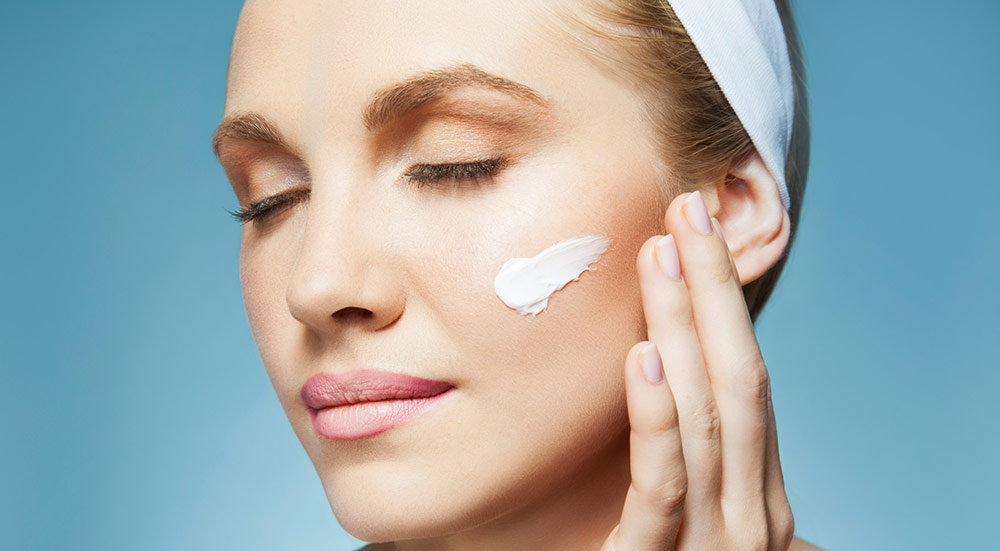
Let's consider how peptides will work in lifting cosmetics. Most protein compounds are capable of binding and retaining water. When the cream remains on the surface of the skin, a moist film is created, which has a lifting effect.
The skin is visually smoothed, wrinkles become less noticeable. And the higher the molecular weight of the protein compound, the more noticeable the lifting effect. The strong bond between proteins and skin occurs through electrostatic interaction. The surface of our skin has a weak negative charge, and a positive charge is imparted to the protein particles in peptide cosmetics. That is why they stick to our skin and thus have a lifting effect.
How is skin moisturizing with peptide cosmetics? With age, the skin becomes dry, so you need to moisturize it. It all depends on the nature of the peptide compound. High molecular weight proteins and peptides moisturize the skin due to the formation of a hygroscopic film on its surface, which acts like a wet compress. If there is a film on the skin, it will also be moisturized.
The protein film does not interfere with the "breathing" of the skin, does not clog the pores, on the contrary, it increases the moisture at the very surface of the skin, and reduces the rate of evaporation of water from the skin into the air. The moisturizing effect is thus most pronounced, but all this will last as long as the film remains on the skin.
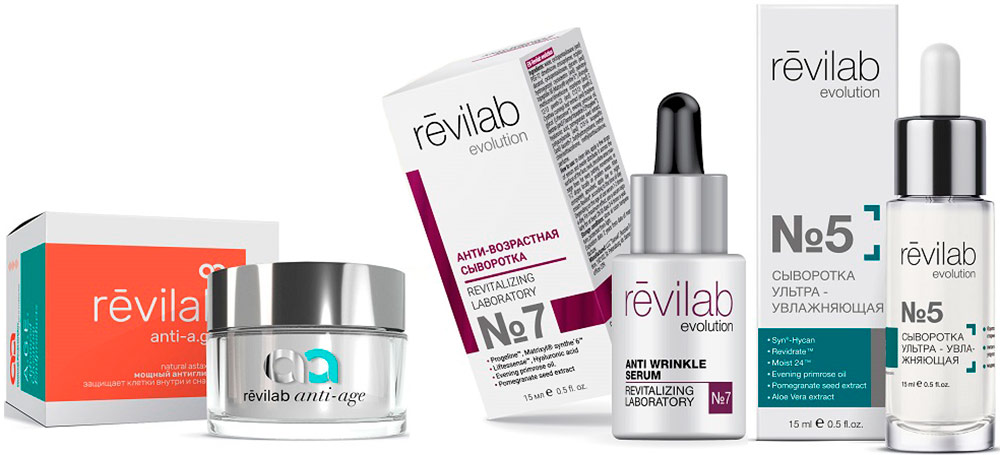
Since many peptides have smaller molecules than protein ones, they can penetrate into the surface layers of the stratum corneum, and there they will retain moisture. Peptide compounds are also used to cleanse the skin. They also have stimulating properties. For this purpose, low-molecular peptide compounds are increasingly included in cosmetic preparations. This is considered another new direction in cosmetology, which gives it a powerful weapon against aging and aging of the skin.
In cosmetics, some stimulating peptide compounds have already been approved, others are under development. In order, for example, to smooth the skin relief, soften the skin, even out the skin tone, it is necessary to act on the living cells of the deep layers. This means that the product applied to the skin must overcome the stratum corneum. This is within the power of low molecular weight peptides.
And yet, despite the small size of the molecules, it is difficult for them to pass through the intact lipid barrier of the skin, since they are water-soluble compounds. Therefore, for the purpose of bioavailability of the deep layers, the peptide molecules are modified, converting them into a fat-soluble form. Thus, they reach the cellular layers of the skin, that is, a signal is sent to the skin for a particular action, triggering certain processes.
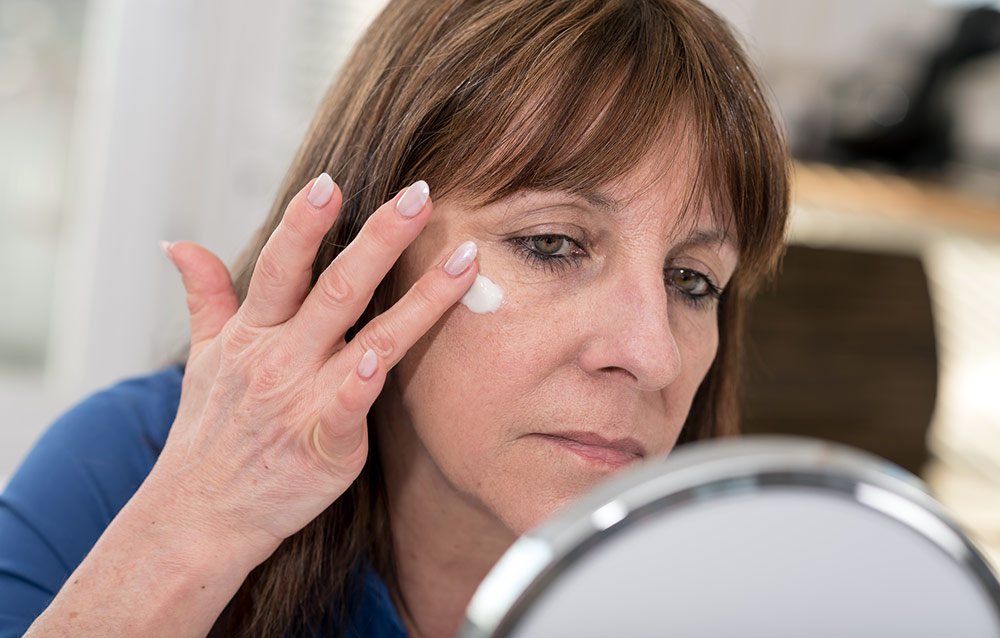
Some peptides cause active production of collagen and elastic fibers, and the skin becomes firm, and the contours - clear. Others relax muscle tissue by reducing expression lines. Peptide compounds can solve the deficiency of various microelements, improve collagen regeneration. Peptides and creams are used for various cosmetic purposes.
1. Reducing the flabbiness of aging skin.
2. Smoothing wrinkles.
3. Healing lesions on the skin.
4. Rejuvenation.
5. Removal of age spots, etc.
The peptides are very potent. Penetrating through the epidermal layer, they enter the deeper layers, where they "communicate" with the cells, sending them certain signals. The best results among cosmetics are shown by those containing peptides - Matrixil, Iseril, Argilerin, Carnosine, GHK-Cu.
Peptides in creams and serums
1. Matrixyl stimulates collagen production.
2. Ayseril fights puffiness and blue circles under the eyes.
3. Argileline is designed to smooth mimic wrinkles; relaxes muscles, but does not paralyze them, unlike botulinum toxin.
4. Carnosine is an ideal antioxidant. Carnosine has a unique effect against cell aging and protein degradation.
5. GHK-Cu - a copper-containing peptide is an important regulator in the regeneration process of many tissues, organs and skin. It accelerates the transfer of copper, regulates the copper concentration as needed, accelerates the healing of wounds, for example, with impaired blood supply, burns, and improves the condition of aging skin.
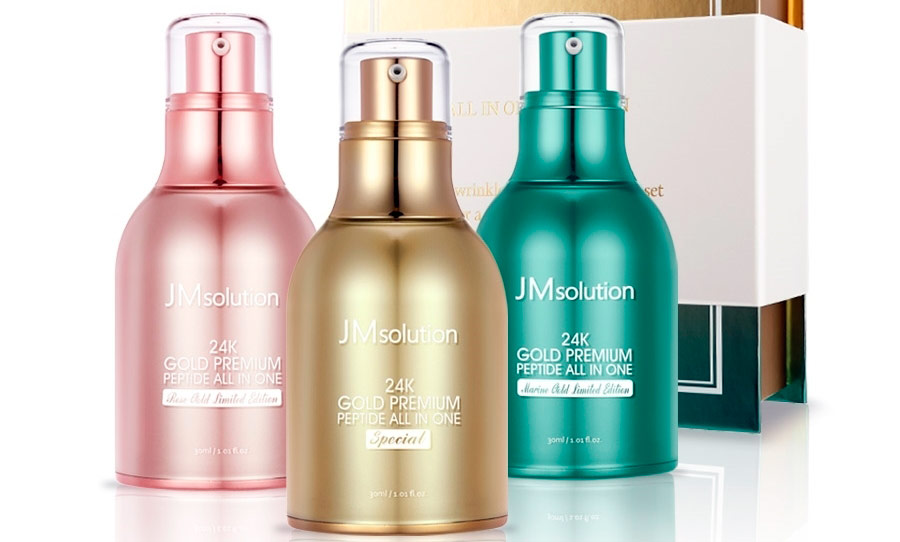
The most popular manufacturers of peptide cosmetic products are in Korea (Mizon).In cosmetics, synthesized peptides are already used, which are much cheaper than natural ones.
If you use peptide cosmetics, you should not expect radical changes. Many factors affect the beauty of the skin, including lifestyle. If you smoke, you have poor sleep, regular stress, do not expect a miracle.
If you need just one cream for all occasions, which will help solve all skin problems, then know - oriental women they think otherwise - they believe that beautiful, clean and even skin, without a single spot, should be created using a variety of cosmetics, from young age to old age.
Comments and Reviews
Add a comment
Rating news
Shades of clothing that make women look younger
What shades of hair make women younger: rules and photos
Funny wedding dresses - photos and ideas
12 most expensive down jackets for the winter
How to look 25 at 40: tips from supermodels
Beautiful schoolgirls
Anti-aging haircuts and hairstyles for women
Fashionable skirts for autumn and winter
Fashionable women's trousers for the cold season
Fashionable and stylish sandals for summer 2024
Spring-summer 2024
 Fashionable dresses and tops with thin spaghetti straps
Fashionable dresses and tops with thin spaghetti straps
 Bandana tops: how to wear stylishly and beautifully
Bandana tops: how to wear stylishly and beautifully
 How to put together the perfect men's wardrobe for the summer
How to put together the perfect men's wardrobe for the summer
 Fashionable shorts for spring-summer 2024
Fashionable shorts for spring-summer 2024
 Fashionable skirts for spring-summer 2024: a guide to online shopping
Fashionable skirts for spring-summer 2024: a guide to online shopping
 The most fashionable dresses spring-summer 2024: styles and colors
The most fashionable dresses spring-summer 2024: styles and colors
 Fashionable total look 2024: ideas of images and trends
Fashionable total look 2024: ideas of images and trends
